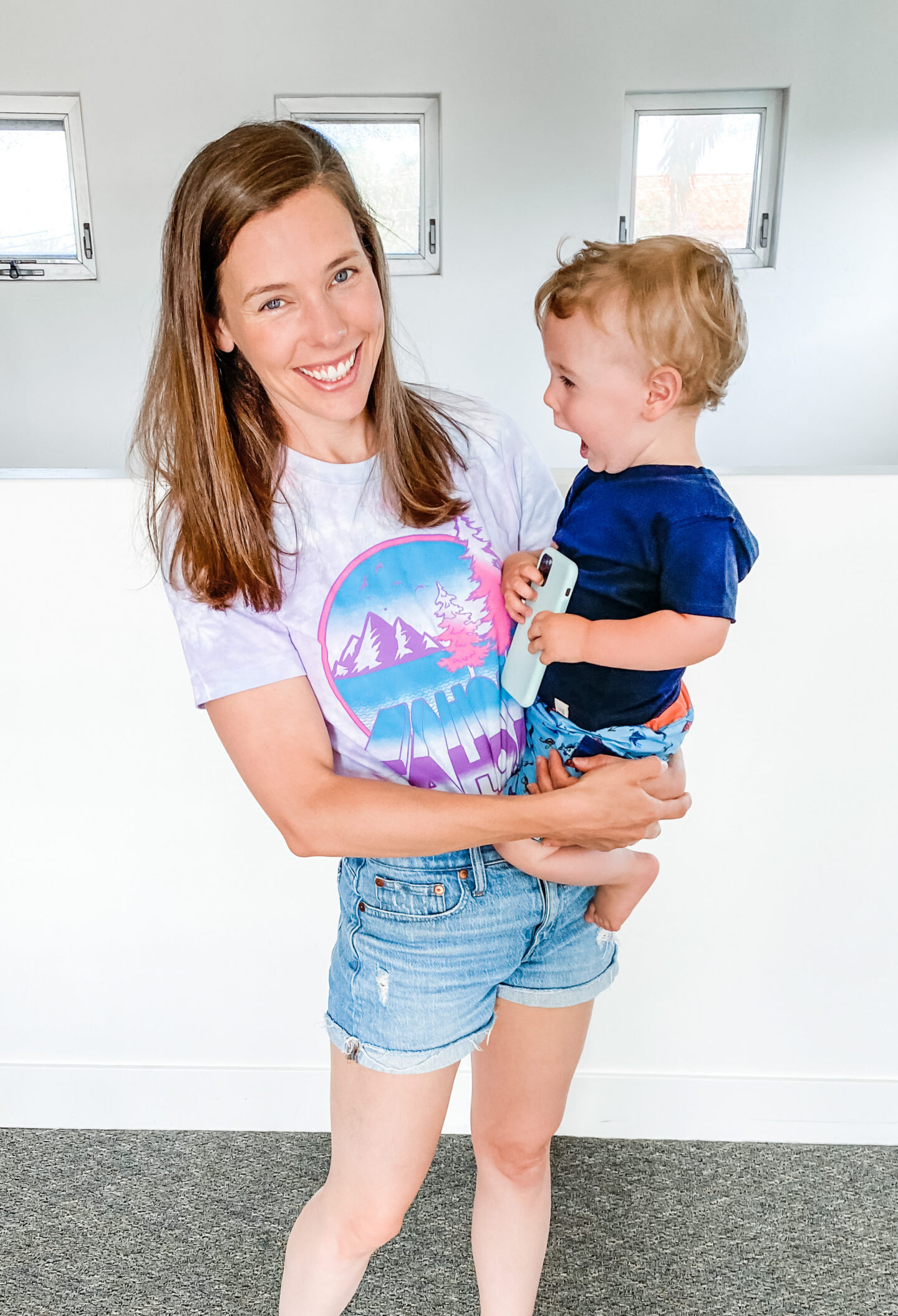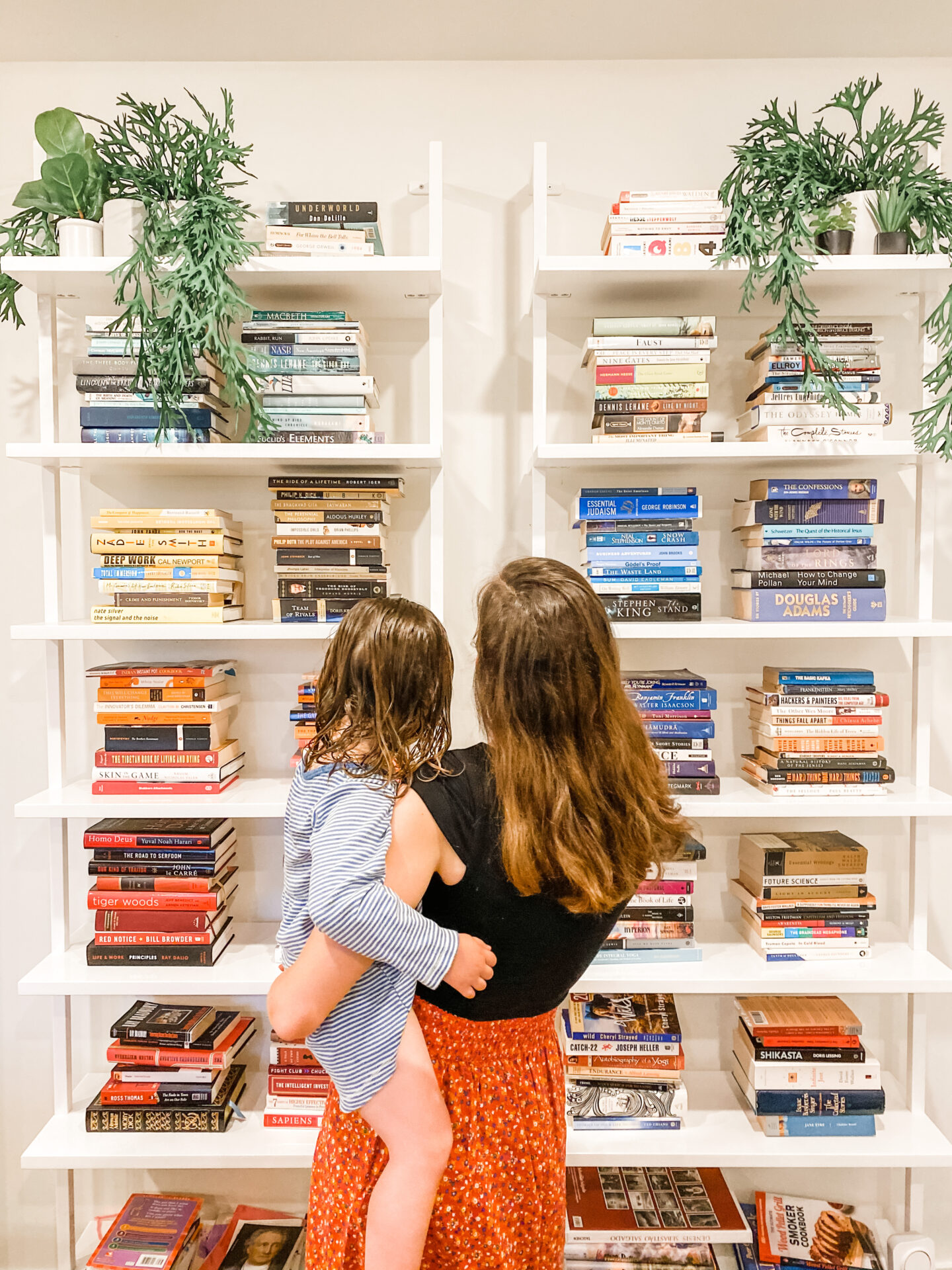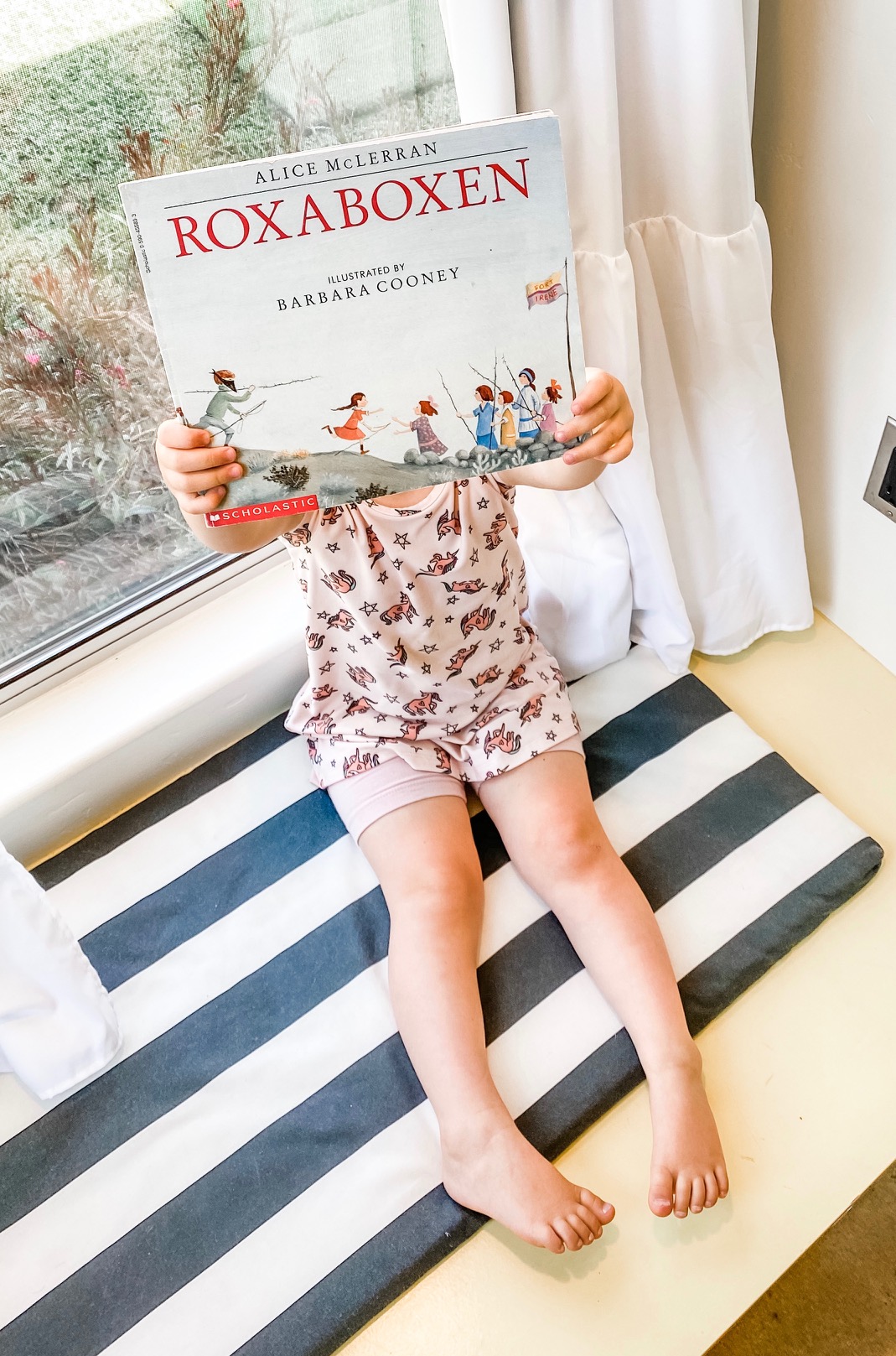“We have everything we need to be happy, but we aren’t happy. Something’s missing. I looked around. The only thing I positively knew was gone was the books I’d burned in ten or twelve years. So I thought books might help.”
Ray Bradbury, Fahrenheit 451
Last week, I started to feel a little crazy. I have been self-isolating with my family for a long time and, as the weeks have turned into months, I find myself spending more hours of more evenings lost on the internet. I know I am not alone in the fact that I have always used social media as an escape – a way to check out from my messy reality and “recharge.” I have also, at times, used it as a substitute for real social connection. During times in my life when real community was lacking – my first years in new cities, and my first months as a new mom to name a few – I have found myself turning to my phone to fill the empty spaces. The current state of the world hasn’t made things any easier, and I know that many of us have been clinging to technology even more obsessively in a desperate attempt to ease the loneliness.

About a week ago, I found myself starting to become so preoccupied with content I was following online that I felt distracted and out of focus in the truly important parts of my day. When I complained to my husband about how I was feeling, and the compounding guilt I felt about feeling these feelings, he laughed at me. In the way, of course, that only someone who is lovingly aware of your self-destructive behavior patterns can.
“You’re living through a pandemic,” he said. “You’re lonely and probably a little depressed. You should put your phone down and read a book.”
Sounds easy enough, right? And some nights it is. But other nights, I still find myself so caught up in the things I know are bringing me down. Like Instagram. I have deleted and re-added this app to my phone about 129497394 times since quarantine began.
I’m not going to hate on Instagram entirely, despite the fact that I am definitely going to delete it from my phone again at some point this week. Instagram, and the internet in general, has been positive for me in a lot of ways: it allowed me to reconnect with childhood friends, and find support and community when I was dealing with infertility. Yet, while I am SO grateful for many of the people I have connected with online, I also find myself struggling to balance the good with the toxic. More often than not, I turn to Instagram, not for real connection, but to be voyeuristic, and feel the thrill of “spying” on people who have purposely thrown open the curtains of their lives for me. I search for things that are pretty, or low-stakes. A cute summer dress, for example, that might distract me from the looming sense of dread concerning the state of mine and my children’s futures that is often lying in wait at the back of my brain. When I turn off my phone at the end of the night, I’m usually in a pretty weird place. My brain feels elated, but I certainly don’t.
Books, on the other hand, are kind of messy. When my husband suggested that I pick the book I was reading back up, I reminded him that I was reading Colson Whitehead’s The Underground Railroad, and that it probably wouldn’t make me feel any less depressed. But then again, that’s probably part of the point.

Unlike mindless scrolling, books don’t always make me happy. Sometimes they actually make me super sad. But, they do push me to put my problems into perspective. They take me out of my own head, and into someone else’s. Books remind me that it is possible to really know someone, even when they are always changing. Writers who understand humanity so completely that they are able to create characters out of thin air give me so much faith in our ability to really see and be seen by others, even when the people we are painting for each other aren’t real.
In the world of Fahrenheit 451, everyone has turned away from books. People defame authors as confusing and contradictory and seemingly pointless. A lot of people (myself included) have drawn frightening parallels between our world and that of Bradbury’s novel, claiming that the next generation is so lost in their phones that we’ll never find them.
However, I don’t think you have to be a literary scholar to benefit from book therapy. I think the teens (and adults, because, let’s keep it real) can keep learning TikToks and worshiping confounding YouTube celebrities, and still keep one foot rooted on the ground. I, myself, can keep hunting for the perfect floppy hat to help me achieve the ever so elusive Anne of Green Gables-Lauren Conrad vibe I’ve been going for, while also putting down my phone at 8 to read Dracula before bed. Everyone’s attention is being pulled in a million directions, and I think asking for all of it or, honestly, even most of it, is unrealistic.
In addition to being a phone addict and an over-thinker, I’m also a middle school teacher. When I read with my class, most kids only connect with a small portion of the book. It could be a chapter or a page, or, more often than not, a single line. A lot of it, they can’t understand because they aren’t ready yet. After I read a book, I definitely don’t remember most of what happened either. Usually, what sticks with me is a line or two, maybe a page or a chapter. There have been times when I forgot most of a book’s plot, but was truly shaken by a single word. I have read such small pieces of text that have opened my eyes to errors in my judgment, or pointed me in the right direction. Quotes that have helped me better understand myself, someone I love, or someone I don’t. Paragraphs that pointed out my ignorance, or highlighted how I actually might know more than I thought I did.
So I guess my goal for this blog is two-fold. I need a reason to write, because it makes me feel full and it keeps the worry at bay. And I want to share pieces of what makes teaching English so special to me–those small paragraphs, sentences, and phrases that snap us out of our own heads and ground us in reality.
In January of this year, not long before I had to shutter the doors of my physical classroom, I was reading the above quote to my class. One of my students, who had been flicking paper-airplane darts into the ceiling for the prior 20 minutes suddenly stopped and looked at me. “Woah,” he shouted, without raising his hand. Several kids laughed, and I’m pretty sure I did as well. But I really hope that everyone in the room saw what was happening. That this student was experiencing, maybe for the first time, that feeling of being 12, or 32, or 90, and someone you’ve never met, who seems so insurmountably far away from you, saying something about a fictional character, in a fictional world, that so perfectly resonates with the very real present you find yourself in.



